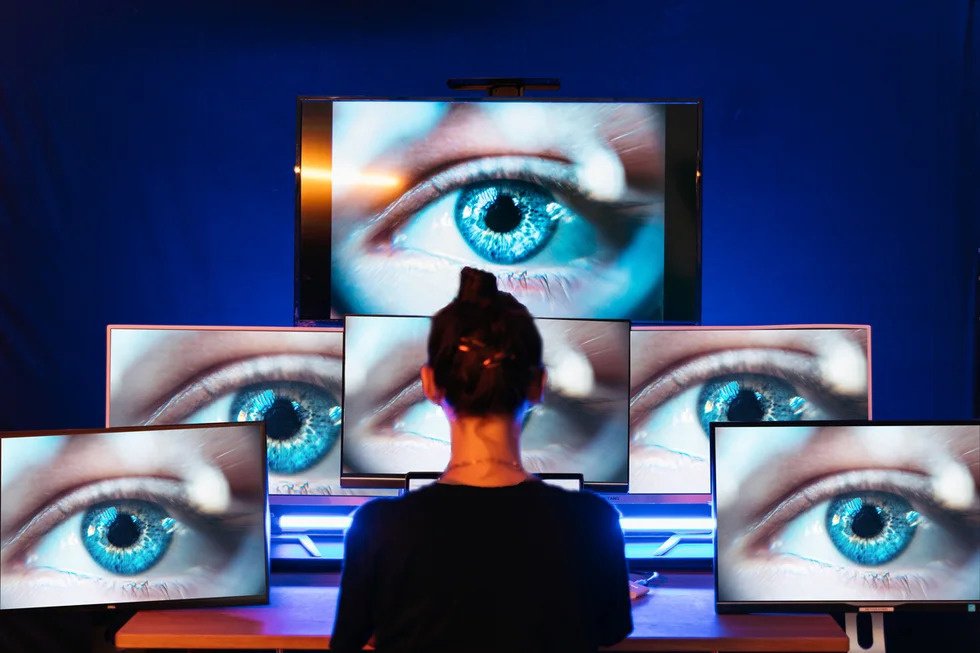So, are robots really coming for our jobs? A conversation with futurist Gary Bolles
Mar 07, 2023
6 mins


Journalist
Though called a futurist by many, future-of-work wizard Gary A. Bolles thinks of himself as more of a “now-ist.“ He is an international lecturer, the author of The Next Rules of Work: The Mindset, Skillset and Toolset to Lead Your Organization through Uncertainty and chair for the Future of Work for Singularity Group. We sat down with Bolles to unpack one of the main worries of workers today: that robots are coming for our jobs.
Let’s start with the fundamental question on everybody’s mind. Will robots take our jobs?
Robots don’t have to take our jobs. So long as people always look for ways to hire humans to do new work. But each of us needs to continually develop new skills so we can solve new problems. Only then will we continually have access to meaningful, well-paid work.
Are there certain fields that are at higher risk of being substituted with automation and robots?
There will be certain kinds of jobs that will be more heavily impacted by what we call exponential technologies.
The problems that we solve in our jobs run across a spectrum: at one end, there are very repetitive problems that can be solved with analytical approaches over and over again; on the other end of the spectrum, there are very unique problems which require truly creative skills to solve.
More and more automation is surely going to happen on the left side of the spectrum — the one that consists of repetitive tasks. This routine work is what robots and software will end up automating. There are tools that can do some things that look fairly creative, especially these new AI tools like chatGPT. But the truth is they’re not truly creative.
So humans will continually be able to do creative problem-solving for quite some time. But if the work you are doing consists of repetitive tasks, it’s very likely you’re gonna see some automation pretty soon.
Historically, people have envisioned a utopia in which technology would eventually enable us to delegate all work to robots — humans will no longer need to work at all. Though people generally do not seem to be working less, some companies are already introducing 4-day weeks, and there are debates going on in some countries about reducing the number of hours people work weekly. Do you think that technology will eventually enable us to work much less?
There’s a lot of historical thinking that robots and software were going to make work so easy that each of us would have lots of leisure time. And the truth is some people have cracked the code on that approach. If you have a very successful Amazon storefront and you don’t have to spend a lot of time managing that during the week, you probably have a lot of free time.
But if you are working at a more traditional job and a traditional workplace with a traditional paycheck, chances are that your employer wants you to put in as many hours as possible and work as hard as possible because it makes money for them.
The best approach for humans is if more and more organizations redesign work. Especially the context for work, the workplace, the hours that we work and so on, so that they’re more responsive to what humans need.
We as humans work better when we have alternating rhythms where we avoid overly repetitive and mundane tasks. We also do better when we are able to make the elements of our life work in harmony with the elements of our work. For some people, that is a four-day workweek. For others, it’s a three-day workweek or flexible working hours. Ideally, more and more employers will accept that this is the way humans should be working.
The Covid-19 pandemic led to a massive, disruptive shift in the rules of working. What did the Covid-19 pandemic show us about the future of work?
I called the pandemic the “Great Reset“ in an article that I wrote in early 2020, because whether it’s for work or for learning and education, many people around the planet found that they could adapt overnight to new ways of working.
That doesn’t mean it was easy or that it went well for everybody. But it shows us as humans that, given the right combination of incentives and disincentives, we can change rapidly.
What is challenging in the post-pandemic era is that many of us are bungee-cording back to the ways we did things before. We are losing many of the advances that we had in terms of flexible work and flexible learning because we are falling back into this industrial-era mindset.
Our opportunity is to make use of the learnings — understanding how each human can do more flexible work, can solve different kinds of problems, and can learn in different settings.
In your book, The Next Rules of Work, you mention that the old idea of a traditional job is becoming obsolete, and that in the future there will be more people having a whole portfolio of work instead. What will this portfolio look like?
The reason I talk about a portfolio of work is because we are all multi-faceted creatures and we have a range of interests. And a portfolio approach allows us to continually be focusing on not just the things we are fascinated by today, but things we might be fascinated by tomorrow.
It’s also a risk management strategy as it allows us to determine a range of different options, some of which might be beneficial to us in the future. So I might have a day job, but if I’m driving for Uber at night and I’m working on a startup with my friends, I don’t know what is going to be the best option for my future… but I do have options.
It doesn’t mean traditional jobs will go away, it just means that there are increasingly more options for people who want to take a portfolio approach. What can be an opportunity is to have the mindset that everything you do is part of that portfolio: learning, having fun with your friends, going on trips. And that could probably blur the lines between what is work, what is learning, what is fun. Sometimes, it might be all three at the same time.
How will all these changes affect the companies we work for? What steps will they need to take to ensure we’re prepared for the future of work?
I’m going to point to two changes in mindsets that employers need in order to continually have the humans they need for problem-solving.
The first is that, in many different fields, employers will need to consider that there are lots of different kinds of skills and experiences they could leverage. And rather than just focusing on traditional degrees and years of experience, employers need to widen the aperture to the kinds of workers they hire. In the United States, we call these workers “STAR’s,” or, “Skilled Through Alternative Routes.“ I think that we need a shift in mindset where we abandon the traditional, cumbersome hiring practices.
The second challenge is to change the way we think of managers or supervisors, moving to what I call a team-guide approach. The old rules of being a manager or a supervisor were that you needed to have all the answers… you needed to be the one in control and you needed to be the one telling everybody what to do.
The role of a “team guide” is rather to be the person with the best questions, the one who understands the unique skills and the superpowers of everybody on a team. In that sense, the main tasks of the new leader is to continually help members grow, develop as individuals and to solve problems effectively.
In your book you say that the shelf life of knowledge and information is shortening. However, the education system, in the US and elsewhere, still relies heavily on memorizing information. How do you think the education system will need to change on a global scale to better reflect the disruptive change taking place in the way we work?
The challenges of our educational systems around the world is that too many of them were designed based on learnings from the industrial era. They don’t incorporate any of the next-generation learnings about neuroscience, about the way people learn or about exponential technologies — such as AI — that can help us to learn more rapidly.
The leading educational institutions around the world know there are three things needed to help young people thrive. First, they need to focus on passion-based learning, on things that fascinate students. Second, they need to focus on real-world problems, as that is ultimately what each of us will be dealing with as adults. And third, they need to learn team problem-solving, because that’s going to be the context for a lot of work going forward.
Unfortunately, a lot of educators misunderstand what skills are. Skills are generally in two categories. There are what I call “know skills,“ which are bodies of information. And you’re exactly right that the shelf life of many of those “know skills” is shortening — we have to continually update many of those bodies of knowledge.
But there is another category that I call “flex skills.“ These include problem solving, analysis, persuasion, or ability to anticipate future problems, and our schools need to teach these explicitly so that young people can solve the problems of tomorrow.
If you were a young person today choosing your career educational path, what would you keep in mind?
We find that the people best equipped to deal with a world of exponential change are those who have some kind of North Star or Southern Cross to give them direction and draw them in. In other words, the more you understand what motivates you, the better you’ll be at adapting to a transient reality.
The process of doing that is what we call “self-inventory.“ The more you can continually go through a process of inventorying your own skills and interests, and of understanding the kinds of problems that you like to solve, the better you will be able to assemble all of those into a North Star, into the kinds of work and learning that you want to pursue.
Photo: Welcome to the Jungle
Follow Welcome to the Jungle on Facebook on LinkedIn and on Instagram and subscribe to our newsletter to get our latest articles every day!

More inspiration: Society for workers

How auto unions are advancing the idea of a shorter working week for all
As support for the 4-day workweek keeps gaining steam, the industry that ushered in the 5-day workweek is still at the forefront
Nov 27, 2023

“Many American workers and families break even at best.”
An economics reporter breaks down the complex landscape of today's economy.
Nov 23, 2023

When your workplace is literally toxic — but you’re a kid
In the US, caustic chemicals, scalding appliances, and dangerous machinery are all in a day’s work for a growing body of exploited children.
Nov 07, 2023

With a universal income, will we stop working?
Universal income is gaining traction in Europe, but questions about essential jobs remain…
Dec 21, 2022

Will working for a DAO be better than a corporate job?
Some say it's the democratization of work. Others warn of toxic power structures... so what's the deal with decentralized autonomous organizations?
Nov 10, 2022
The newsletter that does the job
Want to keep up with the latest articles? Twice a week you can receive stories, jobs, and tips in your inbox.

Looking for your next job?
Over 200,000 people have found a job with Welcome to the Jungle.
Explore jobs